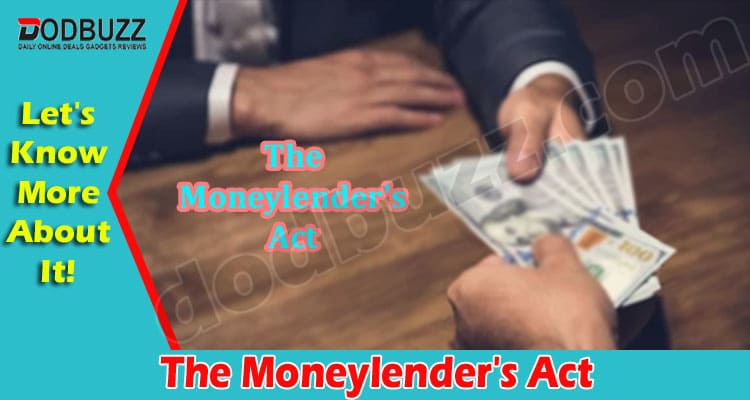Moneylender Act: Money lending is a popular way for Singaporeans to get quick cash in times of need. In 2016, the total outstanding personal loans in Singapore were worth approximately 55 billion Singaporean dollars.
If you are looking to borrow money from a licensed moneylender in Singapore, there are many things to consider.
This article will answer some of the most frequently asked questions about moneylenders in Singapore. It will also provide information about the Moneylenders Act so that you can be sure you are borrowing from a reputable and legal lender.
What is the Moneylender’s Act?
The Moneylenders Act was passed in 2016 to regulate the money lending industry and protect borrowers from unscrupulous lenders. The Act sets out the licensing requirements for moneylenders and rules about how much interest they can charge and what kind of loans they can offer.
It can be found on the Singapore Statutes website and other relevant legislation such as The Moneylenders’ Rules 2008, made under section 132 of the Act.
Who needs to be Licensed?
The Ministry of Law must license only moneylenders who offer unsecured loans of more than S$300. It includes pawnbrokers and individuals who lend money to borrowers in exchange for collateral like property or personal items such as jewelry or cars.
A licensed moneylender must follow the rules set by this Act which includes not charging more than four percent interest per month on any loan or giving out loans without collateral.
Loans without collateral involve higher risk. If the borrower fails to repay the loan with interest on time, the lender may not have any assets to recover their money.
What is a Pawnbroker?
A pawnbroker is a licensed moneylender who offers loans to people in exchange for collateral. The broker will hold onto the item until the loan is fully repaid. If the borrower fails to repay the loan, the item becomes the pawnbroker’s property. They can either sell it to recoup their losses or keep it as part of their collection.
These brokers are often used as a short-term solution by people who need money quickly and do not want to sell their belongings.
Who Needs a Moneylender’s License?
Anyone who lends money to borrowers in exchange for collateral needs to be licensed by the Ministry of Law. The license will include the following:
- a) The name of the moneylender.
- b) The type of loan offered.
- c) The maximum interest that can be charged on the loan.
- d) The maximum amount of money that can be borrowed from a single lender at any one time.
- e) Other terms and conditions as specified by law.
What are the Licensing Requirements?
The licensing requirements for a moneylender are as follows:
- a) The moneylender must be a Singaporean citizen or permanent resident.
- b) The moneylender must have a good character and reputation.
- c) The name and address of the moneylender must be disclosed on all advertisements, business cards, and other materials.
- d) The interest rate charged on loans must not exceed four percent per month.
- e) The moneylender must not give loans without collateral.
- f) The moneylender must not require the borrower to take out insurance or any other form of credit enhancement.
What is the Minimum Amount that can be Borrowed?
The minimum amount that a borrower can borrow from a moneylender is S$300. This amount was set to protect borrowers from unscrupulous lenders who may try to lure them in with small loans that have high-interest rates. You must make sure that you know the minimum amount required before applying for any personal loan.
How Much is the Interest Rate?
The interest rate charged by moneylenders is capped at four percent per month. It means that even if you are borrowing S$20,000 from a lender, you will not be charged more than S$800 per month for the loan.
How Long Can You Take to Repay Your Loan?
The maximum time you have to repay your loan is 60 months. It was put in place to ensure that borrowers do not get trapped in a cycle of debt.
What Happens if You Default on Your Loan?
If you default on your loan, the moneylender can take legal action against you to recover their losses. They can freeze your bank account, repossess any assets you have pledged as collateral for the loan or sue you in court to force you to repay.
How Do You Find a Licensed Moneylender?
You can find a moneylender in Singapore from the directory of licensed money lenders. You can also check the Moneylenders Association of Singapore website for a list of licensed money lenders.
Final Thoughts
Borrowing money in Singapore is not difficult if you know how to go about it. The most important thing is to find a licensed moneylender and make sure that you can repay the loan on time.







